#bbc america
Explore tagged Tumblr posts
Text

#wolf#nature photography#wildlife#wolves#beautiful#wild animals#landscape#gifs#animals gif#howling#white wolf#bbc america#creepy cute#october
663 notes
·
View notes
Text

Killing Eve (2018 - 22)
#killing eve#killing eve s4#killing eve season 4#jodie comer#phoebe waller bridge#sandra oh#tv#tv shows#british tv#tv series#tv show#movie quotes#quotes#fiona shaw#bbc three#bbc#bbc america#thriller#fleabag#current mood#moodboard#adhd mood#fleabag mood#such a mood#bpd mood#eve polastri#eve x villanelle#villanelle x eve#villanelle#be gay do crimes
8K notes
·
View notes
Text


Got this set from Walmart Today :)
#Doctor who#bluray#blurays#physical media#the doctor#the ninth doctor#ninth doctor#timelord#christopher eccleston#the tenth doctor#tenth doctor#time lords#david tennant#rose tyler#billie piper#martha jones#freema agyeman#donna noble#donna temple noble#catherine tate#companions#british#tv show#british tv show#russell t davies#bbc#bbc america#scottish actor#british actor#british tv series
119 notes
·
View notes
Text
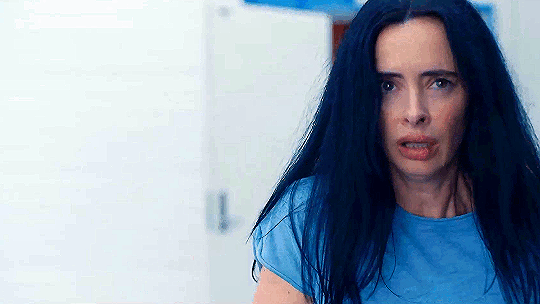
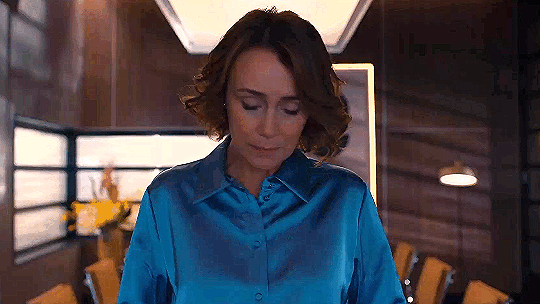
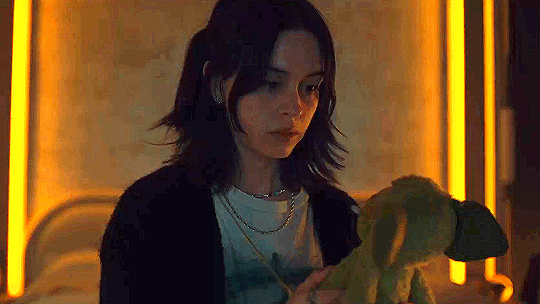
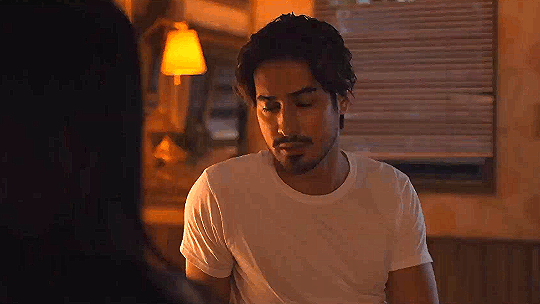
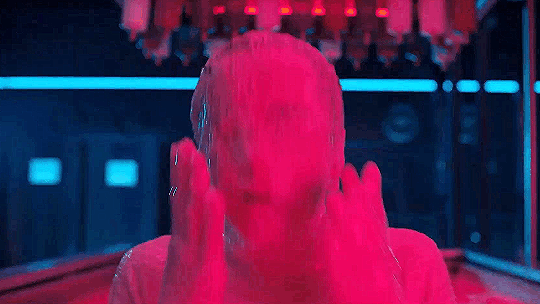
ORPHAN BLACK: ECHOES 2024
Three genetically identical women must band together to unravel the mystery behind their origins. However, uniting human clones will prove to be as unpredictable as human nature.
#Orphan Black#Orphan Black Echoes#OB Edit#Clone Club#Krysten Ritter#Keeley Hawes#Amanda Fix#Avan Jogia#AMC#AMC+#BBC America#TV Shows#Sci Fi#Science Fiction#Cyberpunk#Biopunk#My Gifs
249 notes
·
View notes
Text
The kiss.
Animation made with Procreate
#villaneve fanart#villaneve#villanelle#villanelle x eve#killing eve fanart#killing eve#eve polastri#oksana astankova#sandra oh#jodie comer#bbc america#artists on tumblr#art#digital art#animation#procreate#lgbt+#love
336 notes
·
View notes
Text
I’m watching a Star Trek Movie Marathon on BBC America and just finished Star Trek III: The Search for Spock and now Star Trek II: The Wrath of Khan! WHO THE HELL DECIDED THE ORDER OF THESE MOVIES?!?!??😂
#star trek#star trek tos#star trek movies#bbc america#absolutle hilarity!! XD#ALSO NOOOO I DON’T LIKE WATCHING SPOCK DIE!!!!!😭
20 notes
·
View notes
Text



Tatiana Maslany inducted to the 2022 Canada Walk of Fame
#tatiana maslany#orphan black#clone club#orphan black: the next chapter#bbc america#ob#she hulk#she hulk: attorney at law#orphan black: echoes
53 notes
·
View notes
Text
PSA: BBC America is showing Doctor Who all day Christmas Day. Seems to be only 10th Doctor.
13 notes
·
View notes
Text
I will never let anyone tell me Orphan Black isn't one of THE prettiest shows of the 2010s
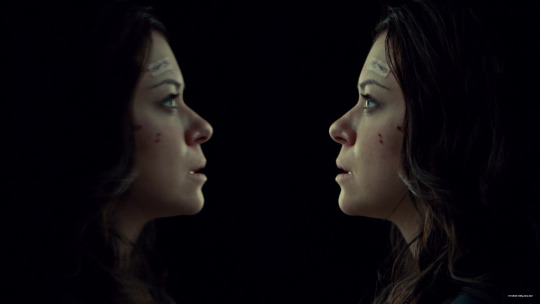

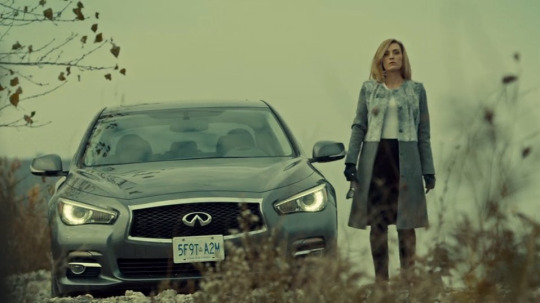
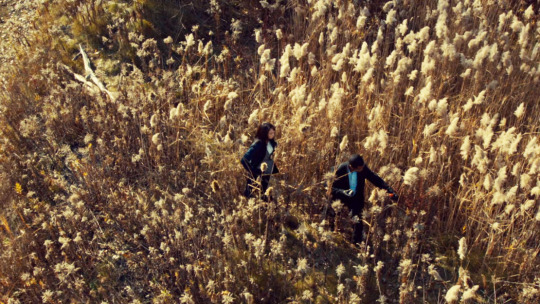
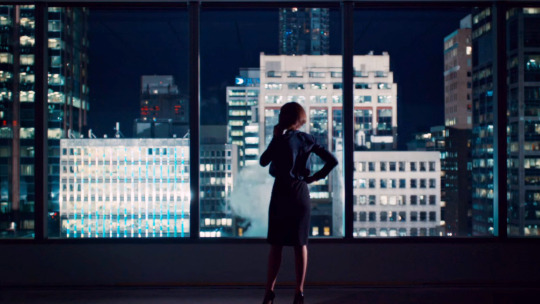
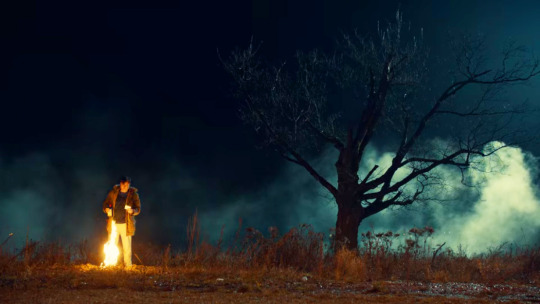


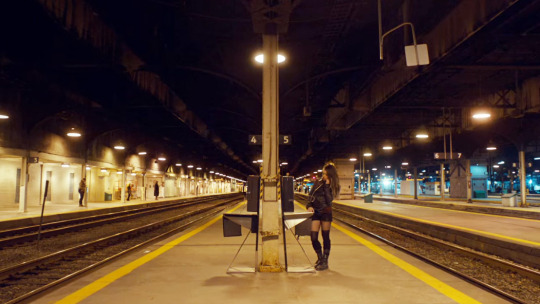
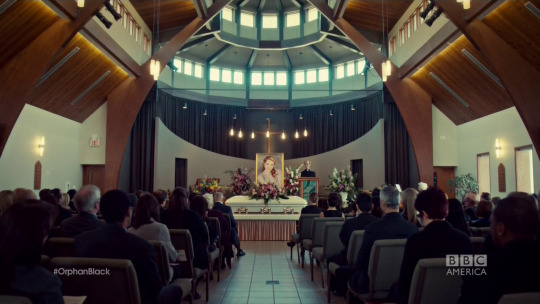
373 notes
·
View notes
Text

Happy Birthday to this mischief softie. 🥺 Happy Birthday Morgana Pendragon. 🥳
@charmingsmolbear
13 notes
·
View notes
Text
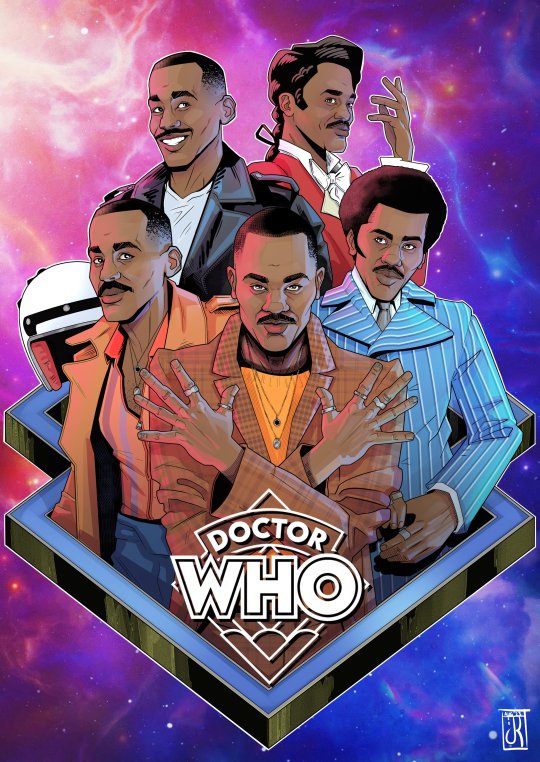
"The Doctor will see you now..."
Art by Jonah Kensett
#doctor who#doctor who fanart#fifteen fanart#fifteenth doctor#fifteenth doctor fanart#fanart#bbc#bbc america
113 notes
·
View notes
Photo
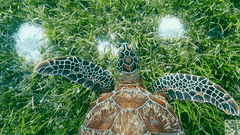
(via GIPHY)
53 notes
·
View notes
Text

I absolutely adore Jodie’s Era 👍🏻💁🏼♀️
#jodie whittaker#the doctor#the thirteenth doctor#thirteenth doctor#timelord#time lady#alien#my screenshot#my screencap#screencap#screenshot#the halloween apocalypse#Doctor who#doctor who flux#Doctor who the complete thirteenth series#doctor who series 13#chris chibnall#bbc#bbc america#bbc one#actress#British#british actress#british tv show#british tv series#british tv#tv show#scifi#british scifi#tv series
24 notes
·
View notes
Text
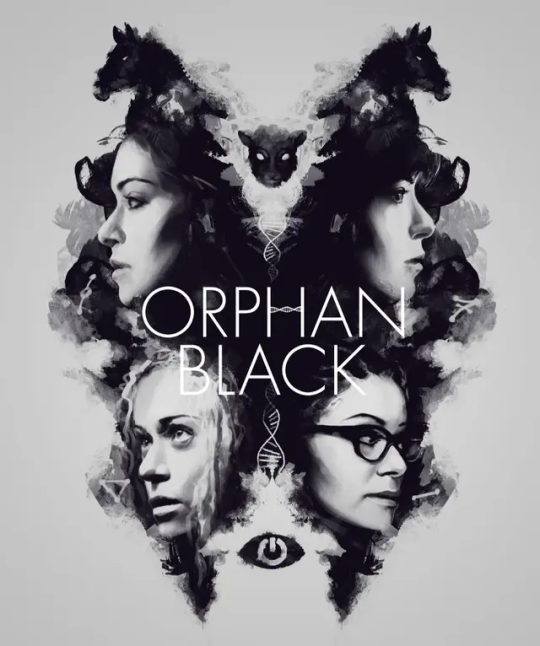
Hello everyone!
The series I'm going to introduce to you today is very close to my heart, and I'm delighted to have the opportunity to tell you all about it. A science fiction series produced by Graeme Manson and John Fawcett for BBC America, its first season was released in 2013. It consists of five seasons of 10 episodes each, and last year saw the birth of its spin-off. Today, I'm going to talk to you about the Orphan Black series!
As always, let's start with a synopsis that's a little longer than usual: Sarah Manning, a young thief in her twenties, orphaned and penniless, witnesses the suicide of Detective Beth Childs, who looks exactly like her. She decides to assume her identity while erasing her own existence by pretending to have taken her own life. Sarah is also the mother of a little girl, Kira, who is being looked after by Sarah's adoptive mother, Mrs. S. The latter agrees to give her back to her on condition that Sarah can prove that she can be a worthy mother, by bringing in a sum of money to support them. Through Beth's investigations, Sarah learns that they are not just twins and that there are a number of them in North America and Europe. She meets Cosima Niehaus, a scientist specializing in genetics, and Alison Hendrix, a stay-at-home mom living in a comfortable suburb, whom she assists in learning more about their origins. In the course of her investigation, Sarah finds herself in the crossfire between two entities: the Dyad Institute, a powerful biotech consortium; and the Proletians, a sectarian movement convinced that they are abominations and which is behind the hunt for them. The two entities step up their hunt when they learn that Sarah, who has escaped their supervision, has a baby daughter - theoretically impossible since they are supposed to be sterile. Sarah, and those she now considers her sisters, are sometimes on the run from these organisms, sometimes fooled by their manipulations, all the while searching for their origins. And now, a short technical presentation: - Created by: Graeme Mason and John Fawcett - Music by: Trevor Yuile - Main cast: Tatiana Maslany, Jordan Gavaris, Dylan Bruce, Maria Doyle Kennedy, Kevin Hanchard, Michael Mando, Evelyne Brochu, Kristian Bruun, Ari Millen, Josh Vokey.
PRESENTATION
It's going to be pretty difficult to talk about the series without spoiling anything, so I apologize in advance for the slight spoilers present in this article. I'll try as far as possible to limit them or point them out if they're unavoidable, but the main spoiler I can't avoid is the main subject of the series.
As you'll have gathered from the summary, one of the main subjects of the series is human cloning. Indeed, Sarah, Beth, Cosima, Alison, and all the others - all played by Tatiana Maslany (She-Hulk, Chronicle of the Living Dead, The Listener)- are not mere twins, but clones. That's why the Dyad Institute and the Proletians are looking for them, although they don't have the same intentions for them if they find them.
SPOILER + In the final episode of season 1, Cosima discovers that each clone has a different DNA tag based on ASCII-coded base pairs. In addition to the identification code, there is the text "This organism and its derived genetic material are restricted intellectual property." followed by a series of patent numbers. Sarah receives a photograph whose caption suggests that the cloning project that produced it was called "Project Leda". SPOILER END
But that's enough spoilers for now, we can finally start the analysis!
CASTING
At the end of the first season, ten clones of different nationalities and social backgrounds are revealed. Other clones gradually emerge in subsequent seasons. In episode 8 of season 2, Tony, a transgender clone, is introduced. All are played by Tatiana Maslany, who alone plays a good third of the show's characters. Often praised by the press for her acting and the complexity of her roles, it was several years before she received any awards for the series, much to the dismay of fans and the press who couldn't understand why.
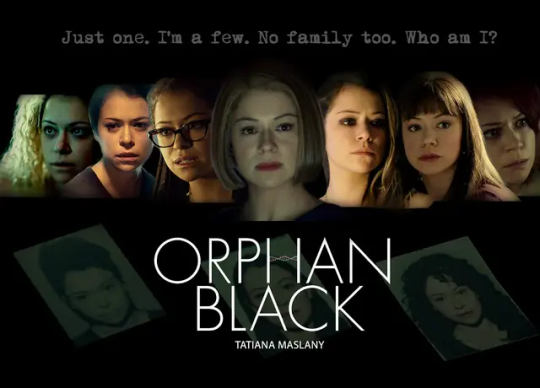
In Tatiana Maslany's portrayal of the eight main clones, she was aided by Kathryn Alexandre (Darknet, Saving Hope, Designated Survivor), who acted as her understudy and acted in scenes where several clones interacted. Although she was not credited in the first season's episodes, she was present throughout the series. She doesn't appear on screen as the clones in any of the broadcast episodes, but motion capture and post-production compositing were used to replace her on-screen with Tatiana Maslany's performance. I'll come back a little later in the SPECIAL EFFECTS AND SHOOTING ANECDOTES section to explain how the footage was prepared to facilitate the work of the actresses and the editors. Tatiana Maslany said of Kathryn Alexandre's performance: "She's so incredible. She memorizes all the lines, all my blocks, all her blocks, my mannerisms, my impulses; she somehow memorizes it all and gives it back to me in a performance that I can build on." Kathryn Alexandre had worked as an actor's reader during the casting auditions for the initial production of Orphan Black. She then auditioned for the role of Tatiana Maslany's understudy and won the spot because the producers were looking for, in Kathryn Alexandre's words, "an actor rather than just an understudy".
KNOWN CLONES (SPOILER)
Throughout the series, each Project Leda clone has its own existence and therefore its own relationships. Early on in the series, we meet Alison Hendrix, mother of two and housewife, and her husband Donnie, as well as Cosima Niehaus, a scientist specializing in genetics. Both of them - played by Tatiana Maslany - and the relationships they develop over the series are key elements of the story.
We also encounter other cloning projects with Project Castor. It's revealed that the original samples from the Castor and Leda projects were brother and sister, making all clones genetic siblings. But there's an even stronger link between the two genomes: a single woman, Kendall Malone - played by Alison Steadman (The King's Man: First Mission)-, is in fact the original of both clone lines, as she is a human chimera. We later learn that, in addition to being the donor of the genomes' DNA, she is also the biological mother of Siobhan Sadler - played by Maria Doyle Kennedy (Conjuring 2: The Enfield Case, Outlander, The Tudors)- Sarah and Felix's adoptive mother and Kira's guardian.
Unlike the Project Leda clones, all Project Castor clones are aware of their cloned nature and have been raised together by Dr. Virginia Coady -played by Kyra Harper (Warehouse 13, The Dresden Files)- in a military setting.
As with Tatiana Maslany, Ari Millen (My Life with John F. Donovan, The Expanse), who plays the Project Castor clones, was supported by Nick Abraham as his understudy when necessary.
Other key clones in the story are also introduced in the course of the series, whether allied or not, but I've already told you a lot and wouldn't want to spoil the whole story for those of you who want to watch the series. I'll just end this part by pointing out that the final episode of the series gives us a glimpse of a worldwide count of 274 Leda clones…
OVERVIEW
I'd like to pay tribute to the titanic efforts of the production team, Tatiana Maslany, Ari Millen, and their understudies to achieve such fluidity in the transitions between the various shots and the many (very many!) roles played by the actors. On a personal note, I have to admit that, over and above the story and the investigative aspect, it was Tatiana Maslany's acting that won me over so quickly to the series. What a performance, to know how to nuance her acting to interpret seventeen characters and make them all different and identifiable. Of course, she didn't do it alone: the writing of the story, the artistic team, and the technical team all contributed to this success.

I'd also like to salute the work of Evelyne Brochu (Tom à la ferme, Café de Flore, Paris Police 1900), Jordan Gavaris (Degrassi: Nouvelle Génération, Take Two), and Kevin Hanchard (Suicide Squad, The Expanse, Hudson & Rex), who were great discoveries or rediscoveries for me, giving this series a warm, familiar feel.
The role played by Matt Frewer (Watchmen, Supernatural, Hercules) is also very important, bringing an extra shade of toxicity to this morally dubious universe.
THEMATICS
While we're on the subject of this series' morals, and in particular those of its characters, I'd like to take a moment to focus on certain themes that I feel the series highlights, to open up a dialogue in the viewer's mind about these subjects.
One of the first themes to emerge in the first few episodes is the questioning of patriarchy. Between Sarah's toxic relationship with her drug-dealing ex-partner Victor, and Beth's relationship with Paul, who not only is her partner but also spies on her for the Dyad Institute, the depictions of couple relationships in the very first episodes of the series are very much in favor of patriarchy. These are situations in which the man in the relationship tries to control his partner's every move, but also to control her mentally by exerting moral pressure. What's interesting for me, beyond this faithful depiction of toxic relationships, is that not only did they not stop at showing this pattern in couple relationships, they extended this possibility to professional and family relationships as well, and, throughout the series, deconstructed these patterns by allowing the female characters to free themselves from these holdings, albeit sometimes with very heavy blows, to regain their independence and find themselves again and not the version altered by the male figures in their environment.
What's more, the very existence of clones means that the series tackles the subject of the exploitation of the body, particularly the female body. SPOILER Between the fact that the stem DNA used to create the two clone families comes from one and the same woman, Kendall Malone, and the fact that they're looking for Sarah and Helena because they're the only two clones with the ability to give life (ndlr. Alison and Donnie's children are adopted), something that until now was not possible in experiments, the female body is used as a tool to satisfy unhealthy research carried out by scientists who have no respect for human existence as we know it. END SPOILER
The series is full of strong female characters, from the clones played by Tatiana Maslany to Mrs. S -Sarah and Felix's adoptive mother and Kira's caretaker played by Maria Doyle Kennedy - and Dr. Delphine Cormier - played by Evelyne Brochu - and it's a great way, in my opinion, of popularizing in viewers' minds that deconstructing patriarchy isn't a bad thing and won't lead to the end of the world, as some people seem to think… An evolution, be it moral, sociological, scientific, or other, is not necessarily a bad thing, but we must welcome it and try to understand it before directly considering it as a danger to be eradicated.
But beyond this aspect, for me, there's a real questioning of the capitalist world, which is ready to tolerate or even encourage any experiment as long as it's profitable. Long before Elon Musk and his Neuralink launched in 2016, the series had already understood and set out to denounce the potential excesses of technological developments in the medical field. I'm not saying that there aren't advantages to such advances, particularly if they help to improve or save lives, as long as they are governed by strict rules, particularly concerning experimentation, whether animal or human, as was the case with Project Dolly in Scotland in the late 90s, to which the very theme of the series refers.
For those of you who don't know, Project Dolly is a sheep famous for being the first mammal clone in history, obtained from the nucleus of the mammary gland of an adult sheep. The nucleus of this cell, containing the entire genetic make-up, is injected into the egg cell of another ewe, from which the original nucleus has been removed. In this way, the nuclear DNA of the first ewe replaces that of the second in the latter's egg cell. 277 egg cells are created, giving rise to around 30 embryos. Only one of these develops into an adult. For the first time, a viable being resulting from this cloning technique survives. Scottish scientists named the sheep "Dolly" after the American singer Dolly Parton, renowned for the generosity of her breasts because the cloning was carried out using mammary gland cells.
The media hype surrounding this project has given rise to the misconception that a clone is a carbon copy of another individual. The identity is that of the nuclear DNA, which implies that the clone is neither genetically identical to another individual, since the genetic heritage is made up of the nuclear DNA contained in the nucleus of the organism's cells and the mitochondrial DNA contained in the cytoplasm of the ovum (and therefore also in the enucleated ovum); nor an identical physiognomy as a result of the role of the environment in which the DNA is expressed, and even if a great resemblance exists, it is ultimately less than that which exists between homozygous twins.
Cloning from differentiated cells of an adult organism represents a major breakthrough in the scientific world. It proves that the regulation of gene expression is reversible, and opens the door to the production of transgenic animals (with extra genes, such as those encoding human proteins used for medical purposes) or animals with special qualities. This could be an interesting technique for safeguarding endangered species.
The same Scottish team cloned 13 ewes, including 4 in 2007 (Debbie, Denise, Diana and Daisy) from the mammary gland cell line that gave birth to Dolly 10 years earlier. Unlike Dolly, these ewes show no signs of accelerated aging. While less than 3% of cloned embryos were born healthy in 1996, this proportion has risen to over 20% for the cohort of ewes in 2016.
To my mind, the potential scientific aberrations of such discoveries are one of the things the series wants to warn us against, and it's all to its credit when we see in the media today all the madness that laboratories are capable of producing under cover of private funding… All progress is good to take as long as it's useful for improving the comfort of life for everyone, but also as long as it's accessible to all and not reserved for a privileged class who has the financial means to afford it. Here's a link to an article that goes into more depth about the biomedical criminality present in Orphan Black.
Finally, I'd also like to talk about representation in this series. With a predominantly female cast thanks to the various clones played by Tatiana Maslany, the series offers a very diverse range of female characters, but not only. It also offers a fine representation of LGBT characters that I won't name to keep you surprised. Whether it's several lesbian couples, gay encounters, or even a transgender character, the series gives pride of place to this community which, for once in a time, is represented outside the clichés. Indeed, they are portrayed as any heterosexual or cisgender person (cisgender: a person in agreement with his or her birth gender, the opposite of transgender) and it's refreshing not to find the scenarist facilities too often used or to have characters portrayed as excessive, "freaks". Whatever your sexual orientation or gender identity, everyone is entitled to self-respect, and it was a real balm for me at the time to see such characters on my screen.
PRODUCTION
Casting for the lead role was announced on September 17, 2012. Although Canadian actor Elliot Page was considered for the lead role, Susan and Sharon Forrest, in charge of casting the series, chose to give the role to another Canadian, Tatiana Maslany. The rest of the main cast was announced at the end of October 2012 as filming for the first season began in Toronto.
In March 2014, BBC Worldwide North America signed an agreement with Amazon for exclusive broadcast rights to the series on Amazon Prime Instant Video. The quality of the series, which is worth watching in one sitting, was cited as one of the main reasons for Amazon's interest. In April 2014, the airing of the first episode of the series' second season recorded a 91% audience increase in the 18-49 age group in cumulative TV broadcast audiences plus Amazon Prime Instant Video. In fact, this increase can be explained by the possibility of viewing the episode after it has been broadcast, which makes it easier for viewers to watch. This is the biggest increase for any first-run drama series on cable this season.
In April 2014, writer Stephen Hendricks sued the BBC and Temple Street for $5 million, alleging that they had stolen the idea for Orphan Black from him. He had submitted a script written in the late 1990s, entitled Double Double to Temple Street in 2004, who then considered and ultimately rejected it.
SPECIAL EFFECTS AND FILMING ANECDOTES
Scenes in which Tatiana Maslany has several simultaneous roles were filmed several times using carriage-mounted motion control cameras that reproduce the movement between each take. This device, the Technodolly, is referred to as the "Time Vampire" on the Orphan Black set because of the length of time several clone scenes take in the production schedule. In these scenes, Tatiana Maslany first plays the scene with her understudy Kathryn Alexandre in the alternate clone role, then alone in the same clone role, then alone in the alternate clone, then a fourth time with the scene filmed with just the camera movement for a background plate. Suspended tennis balls help the actress maintain appropriate sight lines. In post-production, Kathryn Alexandre and the tennis balls are replaced by Tatiana Maslany's footage from alternative shots, allowing for more action in the scenes where she interacts with herself. In the season 2 finale, when one scene required the presence of four different clones, two days of shooting and several additional body doubles were used to create the effect, and the post-production work of Geoff Scott and his team at Intelligent Creatures VFX would have taken hundreds of hours to complete.
Tatiana Maslany created different music playlists to help her distinguish the many clone personalities she embodies. She also used dance to develop the physicality of the characters, including their postures, gestures, and movements and drew on her experience in improvisation to develop the characters more fully.
The character of Cosima is named after science historian Cosima Herter, a friend of showrunner Graeme Manson, and a scientific consultant on the series. Cosima Herter works with the writers to ensure the plausibility of cloning and other scientific aspects of the series, as well as the complexity of the philosophical and ethical concerns it raises.
Make-up artist Stephen Lynch, hairstylist Sandy Sokolowski, and wardrobe supervisor Debra Hanson are instrumental in creating the visual differences needed to distinguish each clone. Indeed, their work is often used to develop the characters' personalities before lines of dialogue are even written. The screenwriters use the character of each personality as reflected in their physical appearances and clothing to refine the moods and nuances of the characters.
The drawings of Sarah's daughter Kira in the series are created by Sash Kosovic, a member of the art department.
In season 4, a reference to the scientific cloning of Dolly the sheep is made through a sheep's head mask worn by a character to keep his identity secret.
SHOOTING LOCATIONS
Orphan Black was filmed in Toronto, Ontario, but it's not specified whether the series was set in Canada. Graeme Manson said in 2014 that the setting was deliberately ambiguous: "It's supposed to be Generica. It's part of the price you pay for this kind of co-production.". John Fawcett agreed, saying "to be honest, we don't want to say we're American and alienate Canadians, or say we're Canadian and alienate Americans. The fact is, we're one big happy family. We're just a little further north than you are. Grantland's Tara Ariano argued that this ambiguity is "a bold new way for a producer to work within the restrictions of CanadaCon: place your show in Canada (technically), employ a Canadian crew, air it on a Canadian channel… and make room for recurring guest stars like Maria Doyle Kennedy… by casting a Canadian in nearly a dozen roles.".
But beyond that, the Canadian location was apparent through details such as Ontario license plates, Beth and Mrs. S.'s Ontario driver's licenses, the currency used, scripted references to the Ontario suburb of Scarborough and Toronto's Parkdale, and a plane ticket in the pilot episode identifying Toronto's Pearson International Airport. Bridgepoint Health and Toronto's Don Jail are stand-ins for the exterior of the Dyad Institute. Scenes set in the Scarborough suburb where Alison lives are actually shot in Markham, Ontario, a suburb immediately north of Scarborough. However, details are often deliberately obscured; American pronunciations of words like "lieutenant" are used.
The co-production also influenced another important aspect of the series: Sarah's British accent and origins. John Fawcett explained that BBC America had asked them to make the main character British, which she wasn't originally, to better match the BBC brand. John Fawcett, however, saw this directive as an advantage, as it made it easy to differentiate Sarah from the other clones and broaden the geographical scope of the series' plot.
OTHER MEDIA
COMICS
In July 2014, a comic book series published by IDW Publishing was announced. The series, whose first issue was released in February 2015, is co-written by series creators John Fawcett and Graeme Manson. A new issue was published monthly until July 2015, when the last of the five contracted issues was published. The issues in order feature Sarah, Helena, Alison, Cosima, and Rachel.
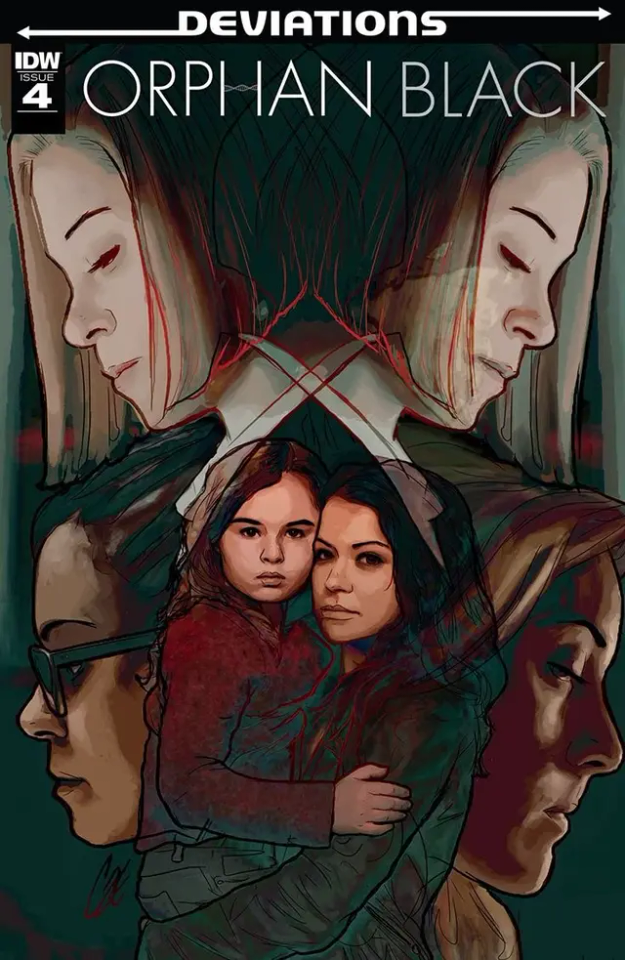
The comic book miniseries was conceived as a way of conveying information about the clones' past and childhood without interrupting the fast-paced TV series. It is presented as an extended universe featuring off-screen events not shown in the episodes. The comics are directly linked to the events of the first season of the series, to anchor the comics in the already established universe. The mini-series offers audiences the opportunity to better understand the emotions, thoughts, and feelings underlying the characters in the TV series.

In August 2015, the comic's conclusion revealed another self-aware clone: Veera Suominen. She was thought to be one of the clones executed in Helsinki, but she survived. The next comic, Orphan Black: Helsinki, published in November 2015, expanded on her character.
AUDIO SERIES
In June 2019, a 10-episode audio series entitled Orphan Black: The Next Chapter was announced, with Tatiana Maslany reprising her role. Serving as an official continuation of the series, it takes place eight years after the series finale. Malka Older is the showrunner with Mishell Baker, Lindsay Smith, Heli Kennedy, Madeline Ashby, and E.C. Myers as writers.
The series is broadcast via the Serial Box platform and the first episode was made available on September 12, 2019. Since then it can be found on YouTube via the link above, or on Spotify and Audible.
A second season aired in October 2021, co-produced by Realm and AMC Networks, adding original cast members Jordan Gavaris, Kristian Bruun, and Evelyne Brochu to the cast.
MUSIC
In May 2015, two compilations of the series' soundtrack were released by Varèse Sarabande Records. These two compilations include music from seasons 1 and 2 with compositions made by Trevor Yuile for the series but also music made by other artists such as Tears For Fears and featured in Orphan Black.
The series' main theme, Theme From Orphan Black, is composed and performed by Two Fingers, a Brazilian musician-composer and producer of electronic music, and features on both compilations.
As usual, I'm also attaching the link to listen to the entire series soundtrack. Just as Tatiana Maslany has done to immerse herself in her characters, I find that the soundtrack not only perfectly reflects the different personalities of the clones, but also underlines every aspect of the plot's stakes.
SPIN-OFF
In March 2019, it was announced that a new series set in the Orphan Black universe was in development at AMC, to be produced by Temple Street Productions just as Orphan Black had been. In February 2022, it was announced that Anna Fishko would be the writer of this new story set thirty-seven years after the end of the original series.

Entitled Orphan Black: Echoes, the series follows Kira Manning -played by Keeley Hawes-, now an adult turned doctor, and her wife Eleanor -played by Rya Kihlstedt, as they try to help a woman named Lucy -played by Krysten Ritter (Jessica Jones, Don't Trust the B*tch in Apartment 23)- who has become amnesiac following a surgery she underwent.
A ten-episode first season began its run in June 2024 and, so far, we don't know if the series will be renewed for a second season as Season 1 airs until the end of August in the US. Series creator Anna Fishko has revealed, however, that she has the entire storyline already planned and is ready to continue the project if the series' ratings allow. Only time will tell, then, whether we'll get the rest of this adventure...
Returning from the original series are Jordan Gavaris who played Felix, Sarah's adoptive brother and therefore Kira's uncle, and Evelyne Brochu who played Dr. Delphine Cormier, Cosima's partner and genetic researcher. The original series theme composed by Two Fingers is also used as the closing credits for the spin-off.
CONCLUSION
And that's it for this series! Sorry again for the delay, it was a big piece for me to write. I hope you've enjoyed reading it all, and that I've succeeded in making you want to watch the series.
I'm aware that some of the scenes in the series may be difficult for some people to watch, because the subjects it tackles are very real, and I find it easy as a viewer to identify with some of the characters, or at least to sympathize with the ordeals they go through.
I really enjoyed discovering it when it first came out, and I hope I'll have the opportunity to watch it again with more experienced eyes, given the themes it tackles.
As for the comics, the spin-off, and the audio series, I haven't yet had the chance to delve into them, and although I'd like to, I'm afraid it would spoil my fond memories of the series. But never say never, so why not maybe one day...
On that note, I'll leave you after this far-too-long article!
As always, I wish you a wonderful week and good viewing, and I'll see you next time!
Eli
#tv show#review#articles#orphan black#tatiana maslany#evelyne brochu#jordan gavaris#ari millen#matt frewer#kevin hanchard#dylan bruce#maria doyle kennedy#michael mando#kristian bruun#josh vokey#graeme mason#john fawcett#trevor yuile#music#spin off#orphan black echoes#orphan black comics#audio series#orphan black the next chapter#clone club#cophine#bbc america
9 notes
·
View notes
Text


I think I’ve seen this film before and I didn’t like the ending…
3 notes
·
View notes
Photo

(via GIPHY)
#giphy#animals#bbc america#oceans#whales#blue planet#blue planet 2#blue planet ii#orcas#killer whales
101 notes
·
View notes